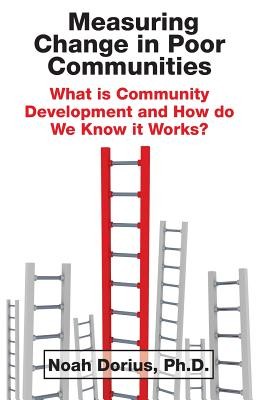
- We will send in 10–14 business days.
- Author: Ph D Noah Dorius
- Publisher: Bookstand Publishing
- ISBN-10: 1634980891
- ISBN-13: 9781634980890
- Format: 14 x 21.6 x 0.6 cm, softcover
- Language: English
- SAVE -10% with code: EXTRA
Reviews
Description
The field of Community Development (CD) is in the grip of a "crisis in knowing" i.e. what is it and how do we know it works? Until these simple questions can be answered simply, related questions of what should be measured and why it's important will remain obscure. Measuring Change in Poor Communities is a call to be more deliberate about what is being measured and what it means. The academics, policy experts, and institutional evaluators of CD initiatives have contributed much to this crisis. They decided that the practice of CD is a "black box" of ideas and techniques germane to no particular body of thought or scholarly discipline. This has helped to precipitate a "theory gap" that prevents knowledge production by any conventional means - there's no recognized theory of community change to guide CD research and evaluation. CD practitioners, on the other hand, do have a common understanding of their work. Empirical studies show they intentionally pursue behavioral change objectives that are firmly rooted in our social work traditions and today's global social change movement. The problem of identifying an analytical model based in sound theory was solved over 50 years ago and CD practice found its natural home in community sociology. It's time to embrace this epistemological record and a general theory of CD practice.
EXTRA 10 % discount with code: EXTRA
The promotion ends in 19d.17:26:53
The discount code is valid when purchasing from 10 €. Discounts do not stack.
- Author: Ph D Noah Dorius
- Publisher: Bookstand Publishing
- ISBN-10: 1634980891
- ISBN-13: 9781634980890
- Format: 14 x 21.6 x 0.6 cm, softcover
- Language: English English
The field of Community Development (CD) is in the grip of a "crisis in knowing" i.e. what is it and how do we know it works? Until these simple questions can be answered simply, related questions of what should be measured and why it's important will remain obscure. Measuring Change in Poor Communities is a call to be more deliberate about what is being measured and what it means. The academics, policy experts, and institutional evaluators of CD initiatives have contributed much to this crisis. They decided that the practice of CD is a "black box" of ideas and techniques germane to no particular body of thought or scholarly discipline. This has helped to precipitate a "theory gap" that prevents knowledge production by any conventional means - there's no recognized theory of community change to guide CD research and evaluation. CD practitioners, on the other hand, do have a common understanding of their work. Empirical studies show they intentionally pursue behavioral change objectives that are firmly rooted in our social work traditions and today's global social change movement. The problem of identifying an analytical model based in sound theory was solved over 50 years ago and CD practice found its natural home in community sociology. It's time to embrace this epistemological record and a general theory of CD practice.


Reviews